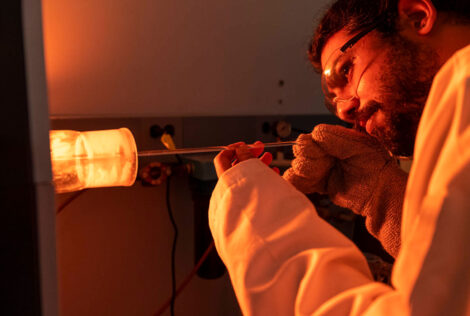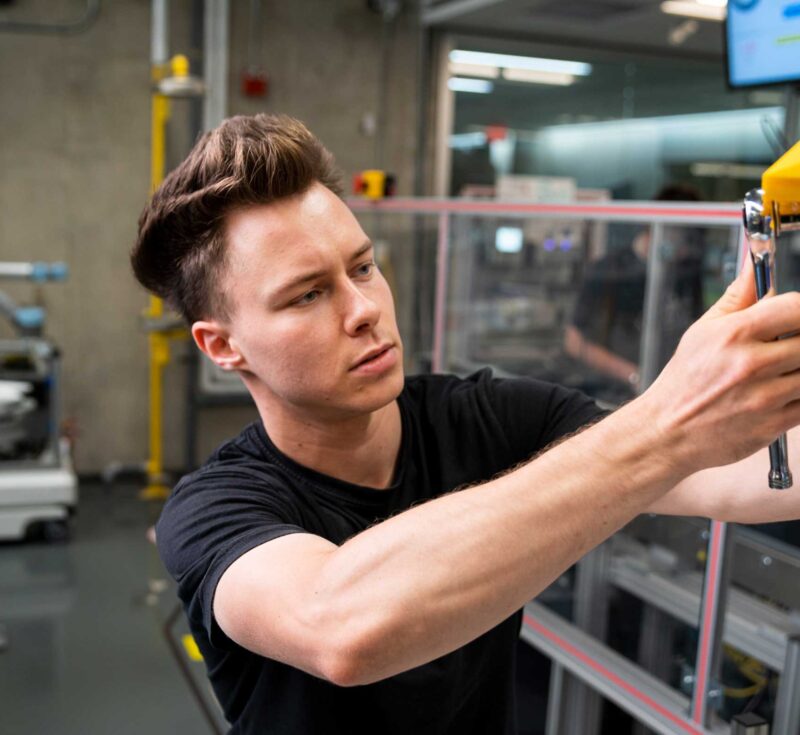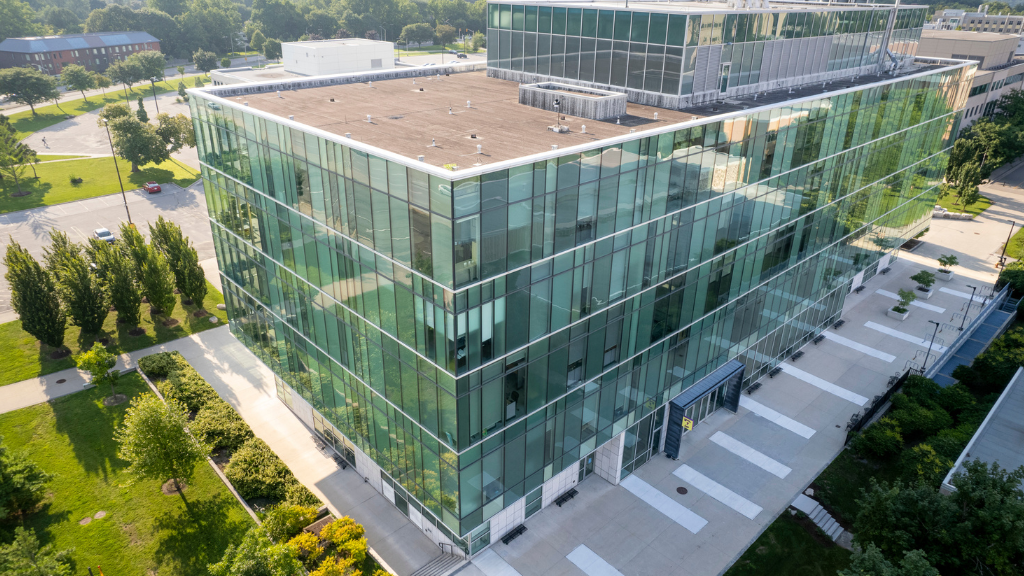
Graduate Co-op
Master’s and PhD students may complete 4 to 12 months of co-op experience in various types of organizations, including corporations, non-profit organizations, government agencies, startups and research institutions.
McMaster’s Electrical and Computer Engineering department is internationally and nationally recognized as one of the leading departments in its field.
In the PhD program, we enable students to enhance their knowledge and skills and seek to provide an environment that fosters creativity and research excellence on an international scale in a particular field of electrical and computer engineering. We also aim to inspire students to a career of contributions in our communities through leadership of advances in the state-of-the-art in their fields of interest.
Faculty members are regular award winners including the prestigious Premier Research Excellence Award (PREA), OCUFA teaching award, McMaster Students Union Teaching Award, Booker Gold Medal, and the Signal Processing Society Education Award.
Candidates are required to prepare a thesis embodying the results of the research taken on by the candidate beyond the Master’s level.

The minimum number of graduate courses required is three 700-level half courses (or equivalent) beyond the Master’s degree. One of these three courses may be taken outside of the ECE program with prior approval by the department. For students transferring to the PhD program from the MASc program without defending a Master’s thesis or entering the PhD program directly from the Bachelor’s degree without beginning an MASc, the minimum number of graduate courses required is six half courses (or equivalent). A maximum of two of these six courses can be 700-level courses taken outside the ECE program with prior approval by the department, and a maximum of one of these six courses can be a 600-level ECE course with prior approval by the department.
Candidates for the degrees of PhD must enrol in the course ECE 790: Graduate Seminars in Electrical & Computer Engineering at least once during their program and present a seminar on a topic approved by the Department. Grading will be restricted to Pass/Fail.
A candidate is also required to take the PhD. Comprehensive Examination, which is designed to test the knowledge and skills necessary to pursue research at the PhD level in Electrical Engineering. The examination will normally be attempted no later than 24 months from the student’s start date in the PhD program, but after the first supervisory committee meeting. The outcome of the most recent supervisory committee must be at least “satisfactory” in order to proceed with the comprehensive examination.
Within approximately one year of commencement, a PhD candidate must submit a report to the Supervisory Committee outlining the proposed line of research in sufficient detail so that the Committee can decide on its suitability.
The doctoral thesis submitted by the candidate must be defended orally at the conclusion of the program.

Master’s and PhD students may complete 4 to 12 months of co-op experience in various types of organizations, including corporations, non-profit organizations, government agencies, startups and research institutions.

The EGS actively supports engineering graduate students through events, workshops, bursaries, and collaboration with various campus organizations, focusing on representation, community building, and academic and professional development.

Hamilton, also known as The Hammer or Steeltown, is a thriving city close to the U.S. border and Toronto, with easy access for students commuting from the Greater Toronto Area via the on-campus GO Bus Terminal.
Understand every step, from applying, to accepting your offer and joining us on campus!
Thank you for your interest in our Graduate Studies. Please fill out the form below, and we will connect with you to answer all of your questions.
